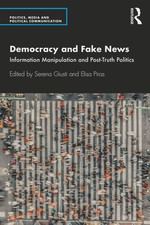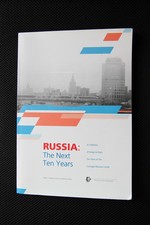“Russia” as a source of concern: are we really talking about Russia?
What do we even mean when expressing concern about “Russia”? As it turns out, Russia can be both a symbol and an external actor able to influence domestic processes. It is important to resist the temptation to conflate different preoccupations
Responding to Alleged Russian Interference by Focusing on the Vulnerabilities That Make It Possible
Based on a media analysis of mainstream Western media, this chapter defines ‘Russian meddling’ as a distinct phenomenon that emerged at …
Russian Meddling in Democratic Processes in Europe and the US
In recent years, the issue of Russian meddling and Russian interference have prominently entered the public and political debate in …
Russia hacked: problematic sources for insights on conflicts in Ukraine and the South Caucasus
In recent years, high-level leaks and hacks have featured prominently in media reporting. Russia has been repeatedly blamed for carrying out cyber-attacks against a variety of actors in Western countries, including the US Democratic party and then-presidential candidate Emmanuel Macron in France. However, Russian government actors have themselves been repeatedly hacked in recent years, including by alleged Ukrainian hacker groups and others (e.g. #SurkovLeaks). People associated with the de facto authorities in the Donbas region have also been hacked.
Responding to alleged Russian interference by focusing on the vulnerabilities that make it possible
In recent years, the legitimacy of electoral processes in Western democracies has been repeatedly put into question due to alleged …
Russia or not, the vulnerabilities are there: let’s fix them
Disinformation campaigns, dubious practices on social media, murkey financing of political campaigns and lobby groups, timed hacked and leaks: new structural vulnerabilities to our democracies are there for anyone to exploit. It’s time to focus our public conversation on new policies and practices that can mitigate these risks
Word frequency of Ukraine, Crimea, DNR/LNR and Novorossiya on 1tv.ru
The data included in this post were prepared for publication on the online journal Ukraine-Analysen 182 (http://www.laender-analysen.de/ukraine/pdf/UkraineAnalysen182.pdf).
This is a quick update to the data presented in a previous post published on this blog in November 2015 on “ Word frequency of ‘Ukraine’, ‘Crimea’, and ‘Syria’ on Russia’s First Channel".
The dataset has been created by extracting textual contents of each news item published on Pervy Kanal’s website between the beginning of Putin’s presidency on 7 May 2012 and 1 March 2017 (115.
Russian media: more Trump than Putin
Recently, Scan Interfax revealed that in the month of January 2017, for the first time since 2011, Vladimir Putin has not been the most frequently mentioned individual on Russian media: Donald Trump was. The news quickly made the rounds on American media (e.g. on Washington Post, Newsweek, CNN, and others).
According to an article by Konstantin von Eggert published by Deutsche Welle, on 15 February Russian state-owned media of the VGTRK group were instructed to stop talking about Trump so much.
Word frequency of ‘Ukraine’, ‘Crimea’, and ‘Syria’ on Russia’s First Channel
Just more than a month has passed since Russia started its military intervention in Syria. There has been a lot of talking about the motivations behind the Kremlin’s decision to take an active military role in the Middle East, and a number of competing explanations have been proposed. However, one element that has been frequently quoted is the Kremlin’s desire to shift attention in Russia’s media from Ukraine to something else, while maintaining the focus on foreign affairs rather than domestic issues.
Russia 2014 as imagined in 2004
In 2004, the Carnegie Moscow Center published a book titled “Russia: the next ten years” (Kuchins and Trenin, 2004). In the introduction, Kuchins makes clear that the aim of the publication is not “to predict” what would happen in the following ten years but rather “to elucidate the context for critical choices for Russian policymakers and the Russian people” (p. 10). However, many of the contributors tried to picture the Russia of 2014, often presenting both a more optimistic and a more pessimistic scenario.



